Celebrity
Lauren Jauregui Exits 'DWTS' with a One-Word Reaction
October 04, 2025
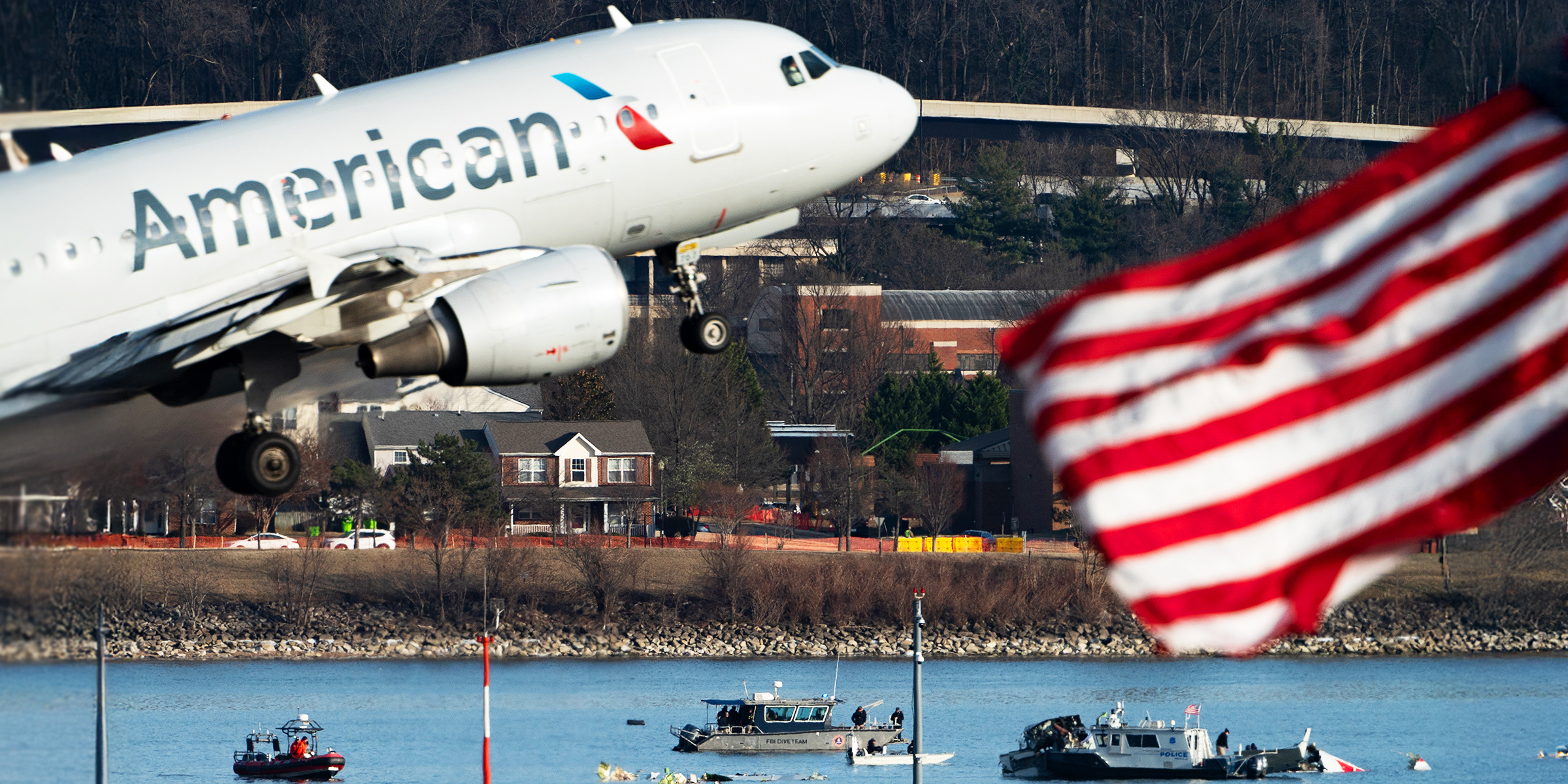
Further analyzed information has provided critical insights into the moments leading up to the deadly collision over the nation's capital, shedding light on unexpected maneuvers by both aircraft that led to the tragic impact.
A devastating midair collision took place over Washington, D.C., on Wednesday, January 29, 2025. The incident involved an American Airlines passenger aircraft and a U.S. Army Black Hawk helicopter and occurred in close proximity to Reagan National Airport. Both aircraft then plunged into the Potomac River.
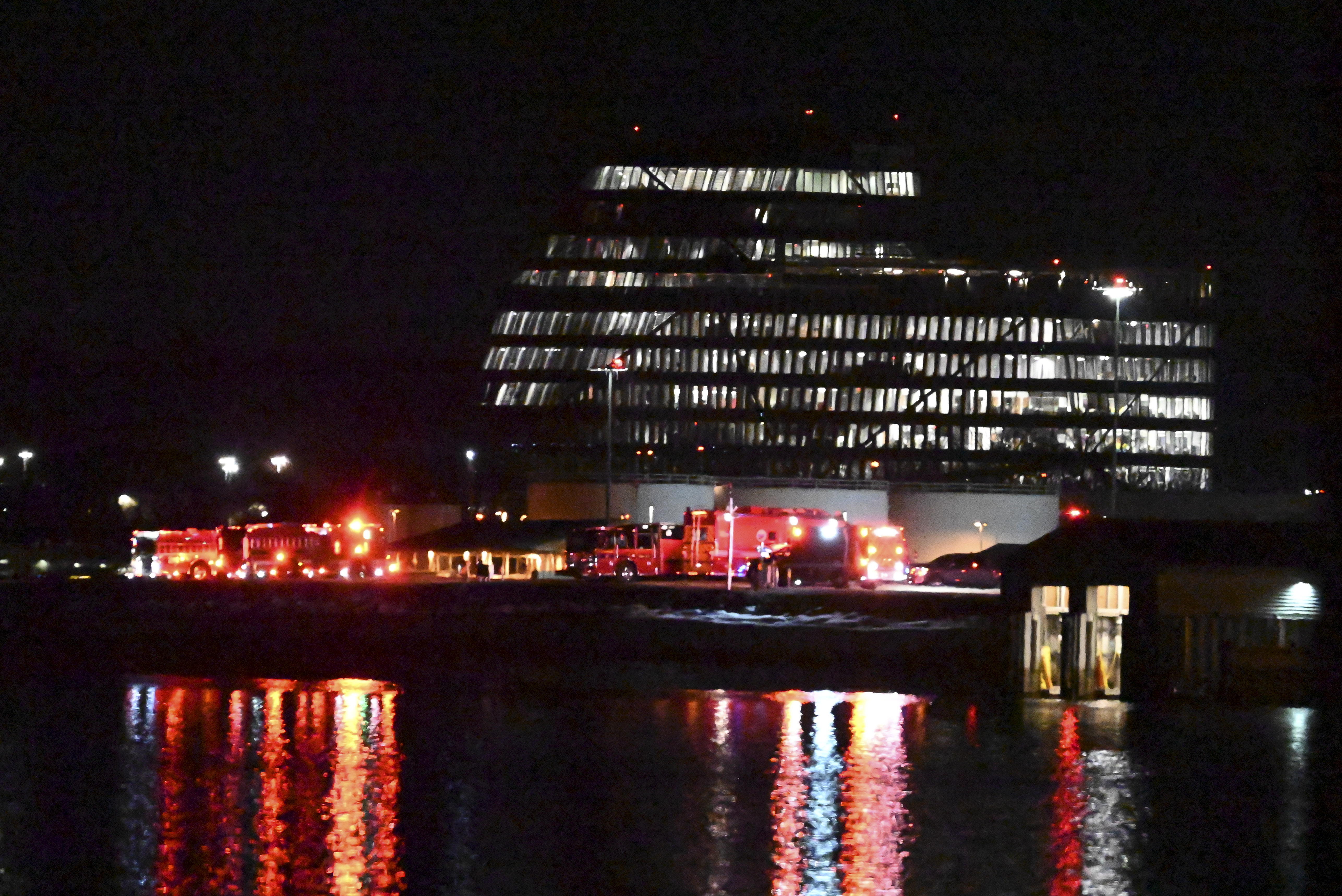
A view of the scene after a regional plane collided in midair with a military helicopter and crashed into the Potomac River in Washington, D.C. on January 30, 2025 | Source: Getty Images
The crash, which resulted in the deaths of sixty-seven people, sparked urgent investigations into possible airspace violations, last-minute flight adjustments, and air traffic control procedures leading up to the disaster.
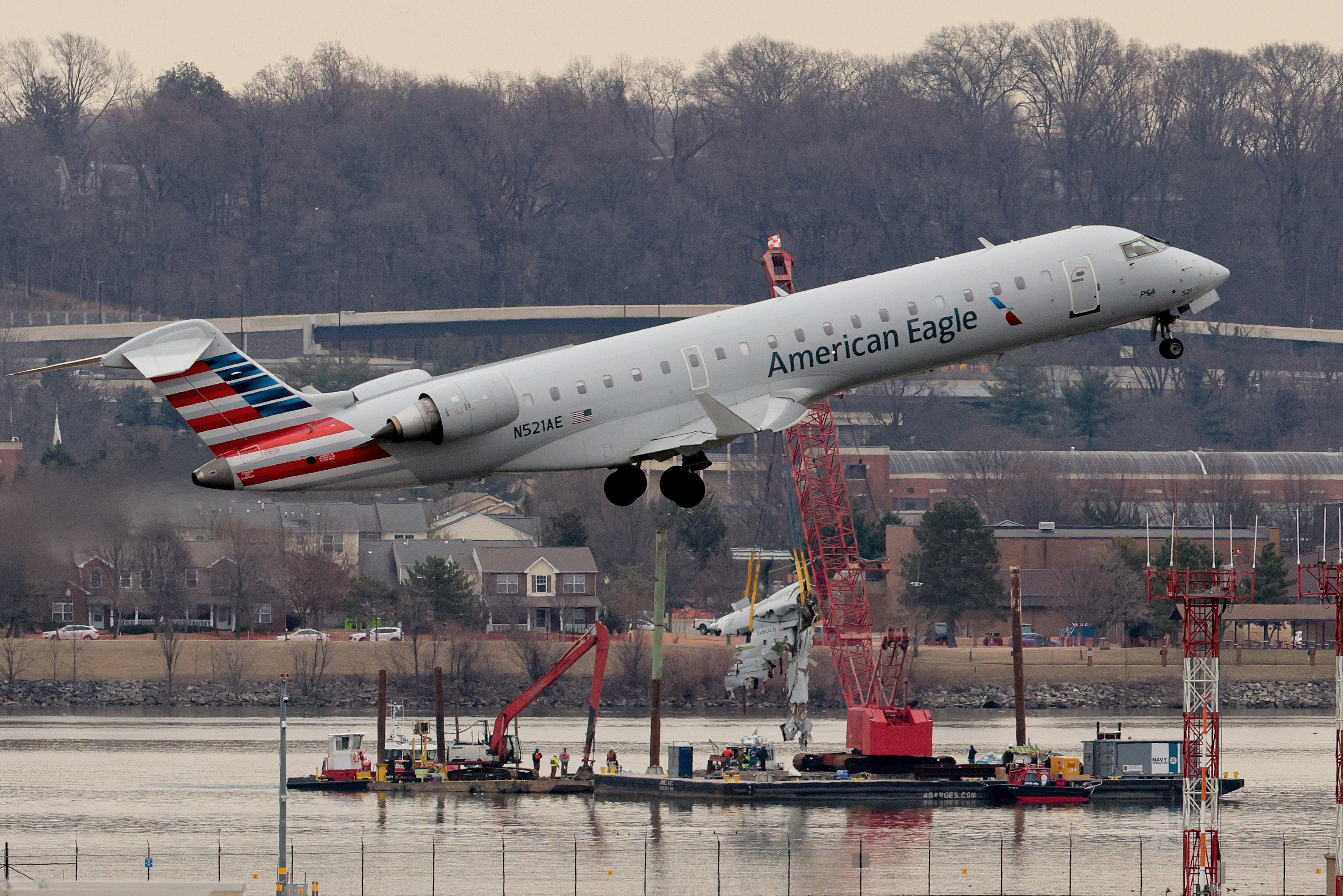
An airplane takes off as recovery efforts continue after the American Airlines plane and Black Hawk helicopter crash near Reagan National Airport on February 3, 2025, in Arlington, Virginia | Source: Getty Images
In the final moments before the catastrophic midair collision, flight tracking data revealed unusual maneuvers from both aircraft involved.
According to preliminary information from the National Transportation Safety Board (NTSB), the American Airlines regional jet appeared to adjust its rotation around its side-to-side axis just before the incident.
"At one point very close to the impact, there was a slight change in pitch, an increase in pitch," said Todd Inman, an NTSB board member, at a press conference.
Investigators began scrutinizing the plane's flight recorder and transcribing audio from the cockpit voice recorder to determine what led to the change.
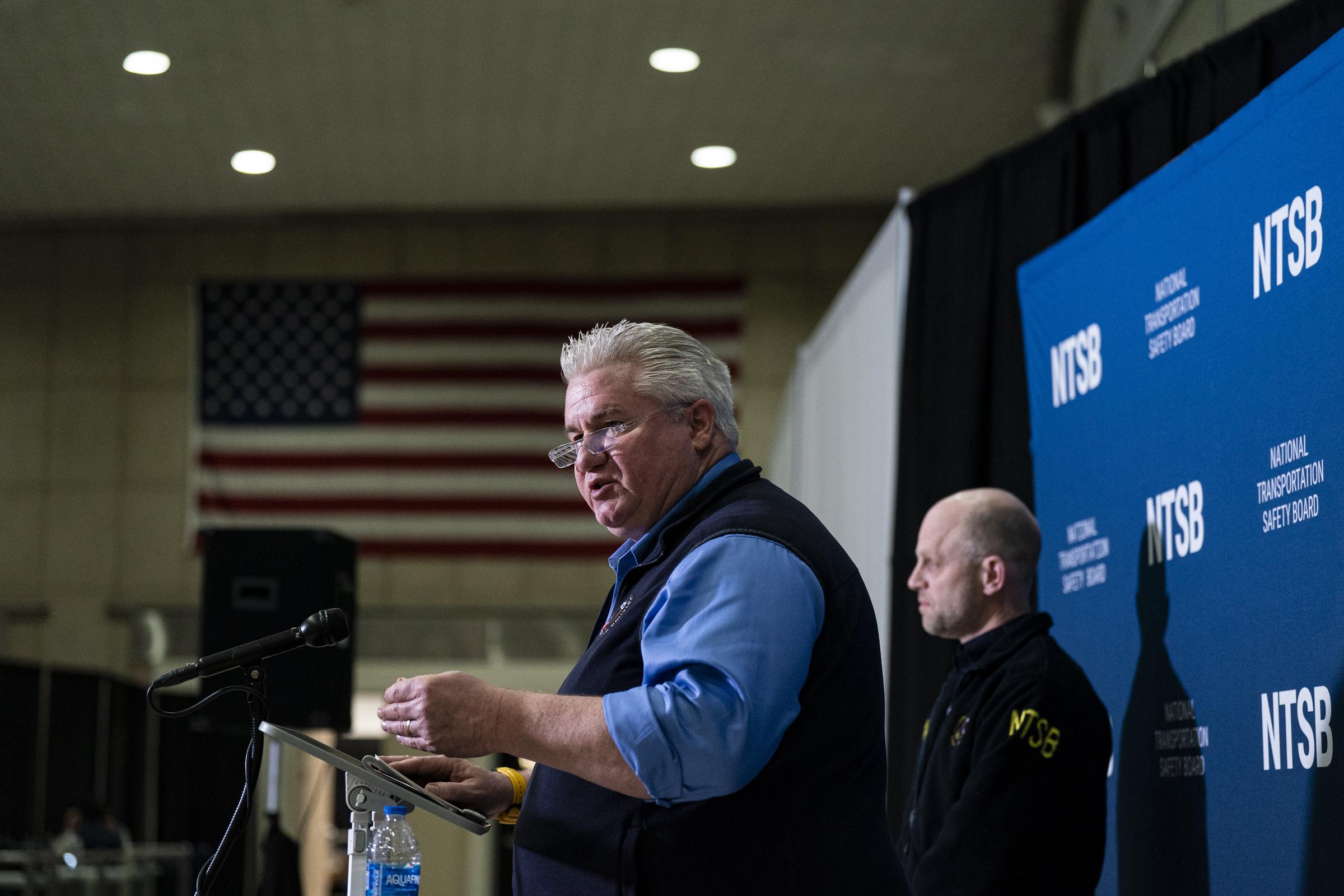
Todd Inman and Bruce Banning during a news conference at Reagan National Airport on February 1, 2025, in Arlington, Virginia | Source: Getty Images
During the investigations, experts determined that the Black Hawk helicopter may have been flying above its permitted altitude. FAA regulations specify that helicopters in Washington's restricted airspace must remain below 200 feet above sea level.
Flight tracking data shows the helicopter at 200 feet over East Potomac Park before ascending to 300 feet over the river. It remained at that altitude until seconds before the crash when it abruptly descended.
Flight tracking information also suggests that the Black Hawk helicopter deviated from its usual flight path. Instead of adhering to the standard route along the eastern bank of the Potomac River, the aircraft's trajectory indicated a turn toward the river's center.
Meanwhile, specific air traffic controllers were charged with monitoring both the passenger jet and the helicopter. However, internal FAA reports reviewed by The New York Times revealed that staffing levels were not optimal on the night of the crash.
The responsibility for managing both helicopter and fixed-wing aircraft traffic fell to one single air traffic controller. Typically, these duties are divided between two separate people.
Several eyewitnesses reported seeing a rapid change in the plane's trajectory just before the crash. Washington, D.C. resident Abadi Ismail, who captured the aftermath on video, described hearing two loud bangs and seeing smoke. "Sounded like a warzone," he told CNN.
Ari Schulman, another witness, described seeing the passenger plane behaving normally until moments before the crash. "Initially I saw the plane and it looked fine. Normal. It was right about to head over land, maybe 120 feet above the water," Schulman recalled. Then, Schulman saw it "banked all the way to the right" and with "a stream of sparks underneath it."
Air traffic control audio obtained by CNN captured a controller instructing the helicopter to pass behind the American Airlines jet. The helicopter pilot acknowledged the directive. Moments later, the collision occurred, and shocked voices could be heard in the background of the control tower recording.
It was later revealed that the Black Hawk helicopter was engaged in a routine training exercise focused on emergency government evacuation procedures. Operated by the 12th Aviation Battalion out of Fort Belvoir, the unit is often tasked with ensuring secure air transport for high-ranking government and military officials in the Washington area.
Investigators are still analyzing whether the helicopter’s unexpected climb to 300 feet and its shift toward the river’s center were related to its training operations, or if other factors were at play.
Secretary Pete Hegseth stated that the Department of Defense had launched an internal investigation to determine why the helicopter deviated from its designated route. "Tragically, last night, a mistake was made," he said at a press briefing.

Secretary of Defense Pete Hegseth speaks about the mid-air crash between American Airlines flight 5342 and a military helicopter in the Brady Press Briefing Room at the White House on January 30, 2025, in Washington, D.C. | Source: Getty Images
Authorities confirmed there were no survivors among the sixty-four people on the American Airlines flight and the three soldiers aboard the Black Hawk. Recovery crews began retrieving bodies from the wreckage on Thursday morning. As of that afternoon, over forty had been recovered.
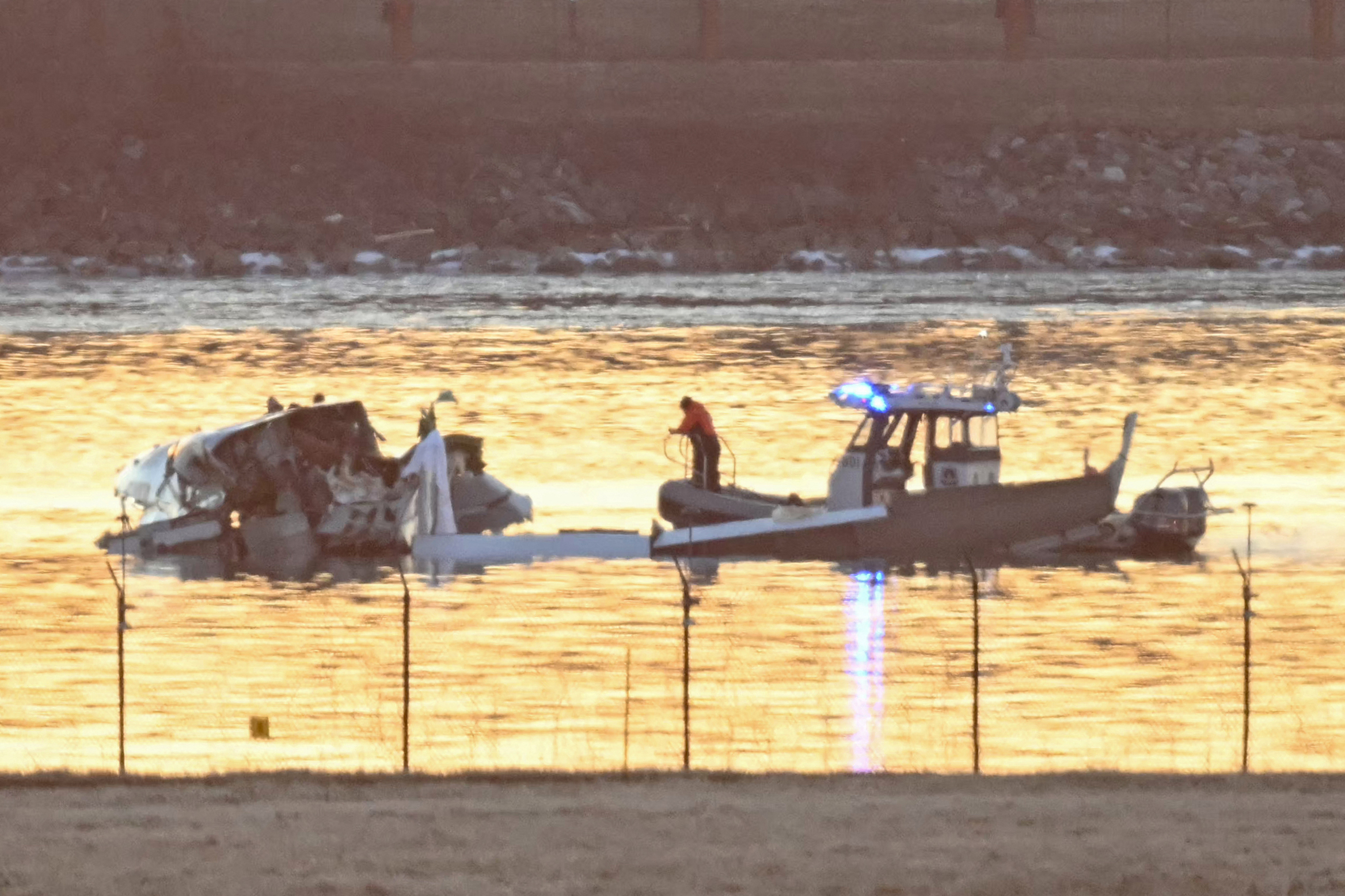
Rescuers search the Potomac River after a plane crash on January 30, 2025, near Washington, D.C. | Source: Getty Images
President Donald Trump addressed the nation that day, calling the event a "tragedy of terrible proportions." He later stated on Truth Social that the helicopter had been flying too high, a claim that aligns with early investigative findings. Trump also announced plans to meet with the families of those lost.
With no survivors, families of the victims are left grappling with the tragedy. Among those who perished were American Airlines pilots Jonathan Campos and Samuel Lilley, as well as several members of the figure skating community who were on board the flight returning from a training camp in Kansas.
Their deaths have sent shockwaves through the skating world, with tributes pouring in from fellow athletes and sports organizations.

A memorial of flowers and gifts is laid at the Skating Club of Boston on January 30, 2025, in Norwood, Massachusetts | Source: Getty Images
Despite the possible explanation provided by the flight tracking data, experts emphasize that several factors still need further examination. The NTSB will analyze the black boxes from both aircraft to reconstruct the final moments before impact.
Investigators will also determine whether the helicopter's altitude violation and altered flight path played a direct role in the collision and whether air traffic control staffing truly contributed to the tragedy.
As the investigation progresses, more details are expected to emerge to shed light on the precise sequence of events that led to one of the most tragic aviation disasters in Washington, D.C.'s history.